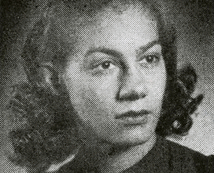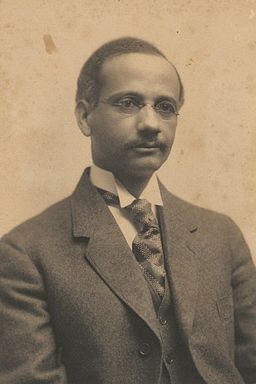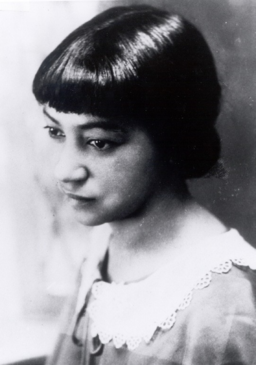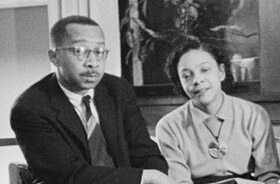It was “a large, plain white building”, W.E.B. Du Bois wrote, “on the banks of the Seine, opposite the Rue des…
Black History Month: Early Mental Health Pioneers

There’s a chronology of “psychology’s contributions to the belief in racial hierarchy and perpetuation of inequality for people of color in U.S.” Even in its compact academic dryness, it reads like a horror story. And it shows the continuing impact of this history in the psychology profession: In 2019, while the proportion of Black/African-Americans in the U.S. population was over 13%, it was just 3% in the psychology profession.
For this Black History Month post, I’ve chosen a group of awe-inspiring African-American pioneers in mental health, who tackled both the sources of this crushing oppression, and its effects on their communities.
I am grateful for a pair of sources I found particularly helpful: Bertha Garrett Holliday’s article, “The history and visions of African American psychology: multiple pathways to place, space, and authority” (2009), and a YouTube video from the Cummings Center for the History of Psychology – the group who undertook the APA’s historical review.
I tried to keep the post short, and ended it at 1970. So it’s just a taste of an extraordinary ongoing chain of effort and accomplishment. I hope the pair of sources above, and links in this article, get you interested in reading more – and even just a quick scan of the chronology could be eye-opening.
For books, check out Robert V. Guthrie’s powerful 1976 book on the history of psychology, Even the Rat Was White and Jeanne Spurlock’s, Black Psychiatrists and American Psychiatry. You can check for copies at libraries, for Guthrie’s book here and Spurlock’s, here. Finally, if you’re a Wikipedian who would like to pitch in on this, I’ve got some notes below the post.
Before 1930

- In 1912, Solomon Carter Fuller published the first comprehensive review on Alzheimer’s disease. Fuller (1872-1953) was born in Liberia: His parents had moved to Liberia after buying their freedom from enslavement in the US. Carter moved to the US when he was 17, graduating with a medical degree from Boston University in 1897. He would go on to become a neuropathologist, conducting research at the University of Munich with pioneering dementia researcher, Alois Alzheimer, from 1904. In 1969, the American Psychiatric Association established a Solomon Carter Fuller Award.
- In 1920, Francis Sumner (1895-1954) became the first African American to be awarded a PhD in psychology in the US. His primary research focus was the psychology of religion, and he Sumner worked to improve educational opportunities for African Americans, and in 1928 became the first chair of Howard University’s psychology department.
- In 1925, Charles Henry Thompson (1895-1980) gained his doctorate in educational psychology. The next year, he began his 40-year career at Howard University, eventually becoming Dean of Liberal Arts. In 1932, he launched the Journal of Negro Education, serving as editor-in-chief for over 30 years.
1930s

- In 1933, Inez Beverly Prosser (1895-1934) was the first African-American woman awarded a doctorate (EdD) in psychology by a US institution (University of Cincinnati). She studied the impact of segregation and racial inequality on Black students, and her work was used to support the Brown v Board of Education case.
- In 1935, Martin David Jenkins‘ (1904-1978) dissertation on gifted African-American children began his influential body of work challenging beliefs about white intellectual superiority.
- In 1936, Herman George Canady (1901-1970) published an article demonstrating that examiners’ racial bias affected IQ test results. He advanced psychology education in African-American universities, and also studied gender in IQ testing. Canady worked to establish the first ethnic minority psychological association as part of the all-Black America Teachers Association meeting in 1938, and was its first chairman.

1940s
- In 1947, Olivia Hooker (1915-2018) used her G.I. Bill entitlement to gain a Master’s in psychology from Columbia University – she had been the first African-American woman in the U.S. Coast Guard during World War II. Hooker was a survivor of the 1921 Tulsa race massacre, hiding under a table while white men invaded the family home. After gaining her Master’s, she was told she “wasn’t intelligent enough” to get a higher degree. She went to work in a correctional facility. There, she realized women were being unfairly designated as having learning disabilities, so she re-evaluated them to give them a chance of a better future. Hooker continued to work on learning disabilities, and gained a PhD in 1961. A lifelong civil rights activist, she was honored by Barack Obama in 2015.
- In 1948, Margaret Morgan Lawrence (1914-2019) became the first African-American member of the New York Psychiatric Institute, and probably the first African-American psychoanalyst. She worked in child and family community health, studying resilience in African-American families. Lawrence studied social determinants of health – “nature, nurture, and noxia” – and how to support the growth of strength in the face of societal stresses.
1950s

- In 1954, the U.S. Supreme Court’s ruling on Brown v Board of Education led to racial desegregation of education in the U.S. The Court cited the Clarks’ doll test research, and it’s been argued no other psychological study has had such an impact on American society. The studies revealed internalized beliefs about race in children in segregated and mixed schools by exploring their preferences in doll skin color. The work developed out of Mamie Phipps Clark‘s (1917-1983) research agenda, and the studies were designed and undertaken jointly with her husband, Kenneth Bancroft Clark (1914-2005). The Clarks were also expert witnesses during the Brown case. In 1970, Kenneth Clark would become the first African-American president of the American Psychological Association.
- In 1955, Robert Lee Williams II (1930-2020) gained his Master’s in psychology and became the first African-American hospital psychologist in Arkansas – despite having dropped out of junior college after an aptitude test classed him as more suitable to manual labor. He had lost his confidence for a time as a result, and would later develop the Black Intelligence Test of Cultural Homogeneity or BITCH-100, using African-American speech and experience to construct a test on which African-Americans would outperform others. He was a pioneer of Black Studies, and in 1973 coined the term Ebonics in an influential book of that name. Williams was one of the founders of the Association of Black Psychologists.
1960s to 1970

- In 1968, the Association of Black Psychologists (ABPsi) was founded, with Charles L. Thomas and Robert L. Green as first co-chairs. Ruth E.G. King (b. 1933) – the first woman president – later reported: “Much of the energy during the originating year, 1968-69 was divided between denouncing racism with APA [American Psychological Association]; and building Black pride through organizing our own professional Association.”
- In 1969, the Association of Women in Psychology was founded. E. Kitch Childs (1937-1993), one of its founders, had also founded the University of Chicago’s Gay Liberation Front and worked to change the American Psychiatric Association’s classification of homosexuality as a disorder. She was one of the pioneers of feminist therapy, conducting consultations in her and her clients’ homes.
- In 1969, the Black Psychiatrists of America was the culmination of meetings that began in the mid-1960s: Chester Pierce was the first president. The organization aimed “to ensure the emotional and psychological development of African Americans,” and challenged “the apathy and neglect” of the American Psychiatric Association.
- In 1970, Joseph L. White (1932-2017) published “Toward a Black Psychology” in Ebony magazine, a strengths-based approach to Black behavior and culture. He was also one of the founders of the (ABPsi).
- In 1970, psychiatrist Clotilde Dent Bowen started a one-year tour of duty as chief of psychiatry for the U.S. Army in Vietnam. She was awarded the Bronze Star and the American Legion of Merit for establishing drug treatment centers and her efforts in reducing racial tensions there. Among many firsts, Bowen was the first African-American woman colonel in the U.S. Army.
~~~~
Wikipedia notes: This BHM, I created the Wikipedia page for Clotilde Dent Bowen – I’d created the one for Margaret Morgan Lawrence many BHMs ago. If you’re looking for a Wikipedia project, here are some major fixer-uppers I saw along the way this month – even little bits of chipping away at them would be great:
- Because originally there was only a joint page for the Clarks, and now only Mamie has her own Wikipedia page, Kenneth doesn’t have a page – and the joint one is still there.
- John Henry Brodhead‘s page was a course assignment, and something went terribly awry. (He’s also not listed among the other Brodheads with Wikipedia pages.)
- There’s a shocking contrast between the chronology I discussed in the intro, and the Wikipedia Timeline of psychology.
Photos all Public Domain via Wikimedia:
- Solomon Carter Fuller, circa 1910.
- Inez Beverly Prosser in 1924.
- Margaret Morgan Lawrence, date unknown.
- Kenneth and Mamie Clark in 1958 (cropped).
- Clotilde Dent Bowen in 1947.